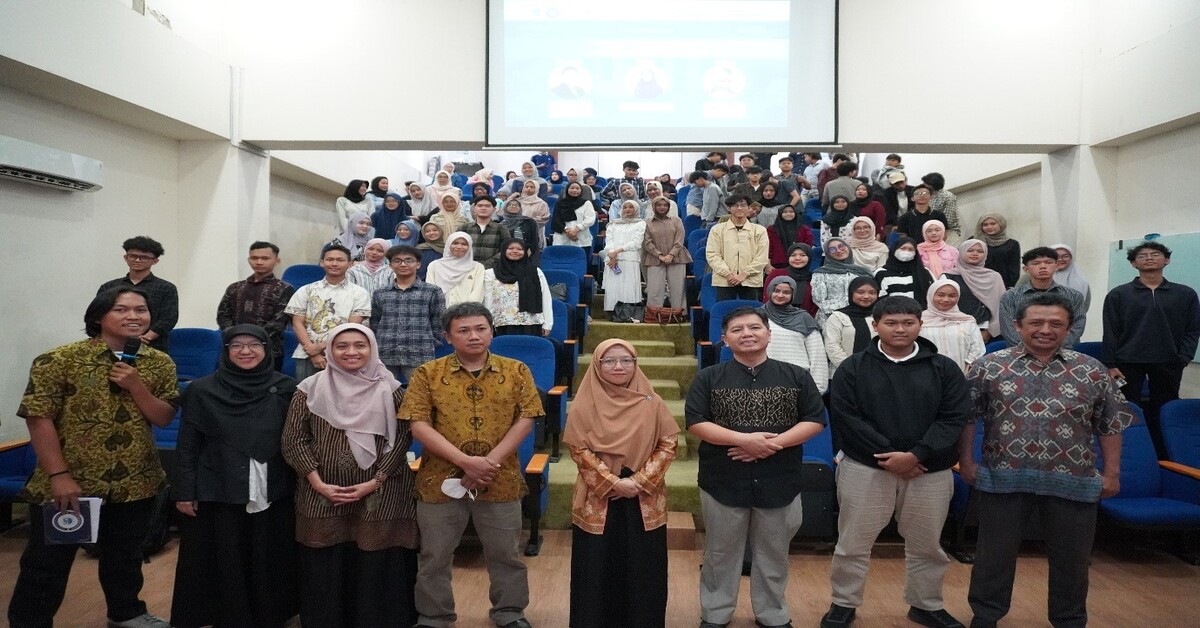Invite LP3S Researchers, the Development Economics Study Program Holds a General Lecture on Microeconomic Concepts
Ciputat, October 30, 2025 — The Faculty of Economics and Business (FEB) of the Syarif Hidayatullah State Islamic University (UIN) Jakarta, Development Economics Study Program, held a General Study entitled “Leveraging The Microeconomics Concept: Downstreaming, Externalities and Social Welfare”. The event featured a speaker from LP3S, Dr. Yuridistya Primadhita, MPKP (LP3S Researcher and Lecturer), who was moderated by Development Economics Study Program lecturer Zaenal Muttaqien, MPP.
The event was opened by the Vice Dean for Academic Affairs, Sofyan Rizal, accompanied by the Head of the Development Economics Study Program, Arief Fitrijanto, Secretary RR. Tini Anggraeni, and attended by lecturers and students. In his speech, Sofyan Rizal said that discussion activities are very important to sharpen scientific insight, especially in the field of microeconomics, directly from the experts. “This general study is very important for lecturers and students to sharpen our scientific insights on microeconomics directly from the experts,” said Sofyan. In line with Sofyan Rizal, the Head of the Development Economics Study Program conveyed the same thing. “This activity is a forum for lecturers and students to discuss development economics studies,” added Arief.
Through the general lecture themed “Leveraging Microeconomics,” Dr. Yuridistya Primadhita emphasized the importance of applying microeconomic principles in national downstreaming policies. Downstreaming guided by considerations of externalities and social welfare will lead Indonesia towards an economic transformation that is value-added, fair, and sustainable. This material discusses how microeconomic concepts form an important foundation for understanding and designing development policies, particularly the downstreaming of natural resources, externalities, and social welfare.Microeconomics studies the behavior of individuals and companies in allocating resources. Micro concepts such as market efficiency, externalities, and social welfare form the basis of national economic policy. In the context of Indonesia, the implementation of downstreaming serves as a concrete example of the connection between microeconomic theory and macro development policy.
The goal of microeconomic policy is not only efficiency but also equity. The social welfare function (SWF) combines individual utilities into collective well-being. The government plays a major role in ensuring a balance between economic efficiency and social impact. Downstreaming policies must be accompanied by mechanisms for internalizing externalities (taxes, subsidies, or environmental regulations). Synchronization of micro and macro policies is necessary — including those related to industry, labor, and vocational education. This should be strengthened by linkages between large industries and local SMEs. The ultimate goal is efficient, inclusive, and sustainable growth. The general lecture ended with a question-and-answer session and a group photo. (AC)

